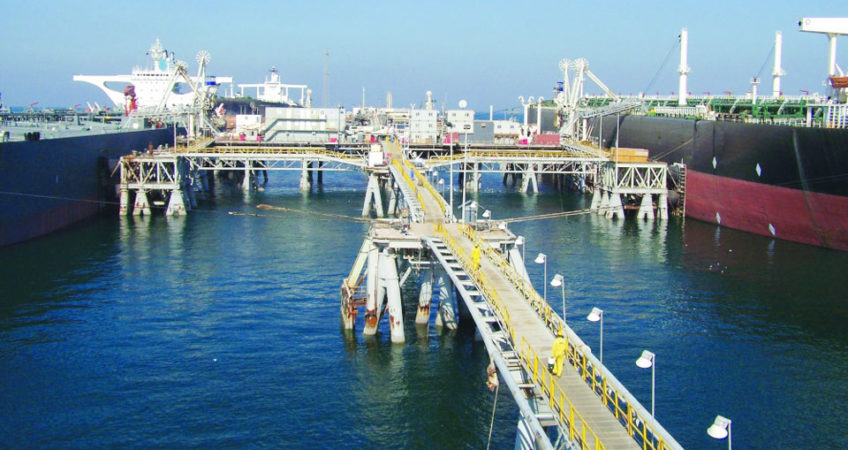
The Kribi Deep Water Port is a complex located 35 km south of the seaside town of Kribi on the Cameroonian coast, it borders the Gulf of Guinea and the Atlantic Ocean.
The decision of the Cameroonian government to build the port on the Mboro site came in 2008 with the establishment of the steering committee1. The work is carried out by the China Harbor Engineering Company (CHEC). Construction work began in 2012. The first ships were welcomed in 2014, the berthing of a deep draft vessel took place in March 2018.
The deep water port of Kribi is close to Cameroon’s major mining sites. It relieves congestion in the port of Douala, where the delays in receiving ships are sometimes several weeks. But also to make Kribi a major port hub with several new terminals. Since 2003, it has also been the outlet for the Chad-Cameroon oil pipeline.
Ultimately, this port infrastructure will cover an area of 26,000 hectares. It will include: a general port with container terminal, a multipurpose terminal, an aluminum terminal and related plant; a hydrocarbon terminal associated with a storage area and a grain terminal; an LNG terminal, and a natural gas liquefaction plant. To this will be added a marina, an industrial fishing port and a naval base.
All these developments will be carried out between 2012 and 2040, for a total cost estimated at CFAF 6,500 billion. 20,000 direct jobs are planned, ditto for indirect jobs. Construction work on the deep-water port of Kribi began on December 27, 2010 with the launch of general earthworks for the construction of platforms to accommodate the onshore port facilities of the general port at Mboro2. 60 hectares of forest have thus been cleared. The first phase of the deep water port of Kribi was accepted in April 2015. This reception, qualified as technical, consists of an annual capacity of 350,000 TEU (Twenty foot equivalent) for the reception of ships, and a multipurpose terminal with an annual capacity of 1,500,000 tonnes3. The Chinese company CHEC, a construction and civil engineering company, a subsidiary of CCCC, one of the 500 largest Chinese companies, has delivered the first phase of the Kribi container terminal, the first of its kind built in Central Africa , which has a quay of 350 m and a depth of 15 meters. The second phase of construction, in particular a new quay of 700 meters will be delivered according to the Bolloré group [ref. desired], within a maximum period of 5 years. Ultimately, the port will be larger than that of Douala and will benefit from greater sea depth to accommodate larger ships. Its extension is planned over five years4. The development of specific terminals is also planned, including aluminum, hydrocarbon, alumina, mineral, liquefied natural gas, etc. terminals.
